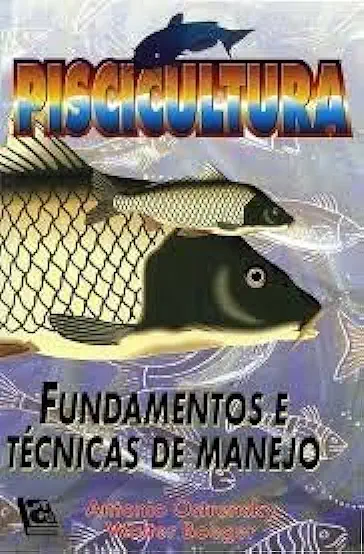
Fish Farming: Fundamentals and Management Techniques - Antonio Ostrensky and Walter Boeger
Fish Farming: Fundamentals and Management Techniques
A Comprehensive Guide to Sustainable Aquaculture
In the face of increasing global food demand and the challenges posed by climate change, fish farming has emerged as a crucial solution for providing a sustainable source of protein. "Fish Farming: Fundamentals and Management Techniques" by Antonio Ostrensky and Walter Boeger offers a comprehensive and practical guide to this rapidly growing industry.
Understanding the Basics of Fish Farming
The book begins by introducing the fundamental principles of fish farming, covering topics such as site selection, water quality management, and fish nutrition. Ostrensky and Boeger provide a thorough understanding of the biological and ecological factors that influence the success of aquaculture operations, ensuring that readers gain a solid foundation in the field.
Exploring Diverse Aquaculture Systems
The authors delve into the various types of aquaculture systems, including pond culture, cage culture, and recirculating aquaculture systems (RAS). Each system is examined in detail, highlighting its advantages and disadvantages, and providing practical guidance on design, operation, and management. This comprehensive coverage allows readers to make informed decisions about the most suitable system for their specific needs and circumstances.
Mastering Fish Health Management
Fish health is paramount to the success of any aquaculture operation. Ostrensky and Boeger dedicate a significant portion of the book to fish health management, covering topics such as disease prevention, diagnosis, and treatment. They provide practical advice on biosecurity measures, vaccination protocols, and the responsible use of antibiotics, empowering readers to maintain healthy fish stocks and minimize losses.
Ensuring Environmental Sustainability
Sustainability is at the core of responsible fish farming. The book emphasizes the importance of environmental stewardship and provides detailed guidance on minimizing the environmental impact of aquaculture operations. Topics covered include waste management, water quality monitoring, and the integration of aquaculture with other agricultural practices. By adopting these sustainable practices, readers can contribute to the long-term viability of the industry and protect the delicate ecosystems in which fish farms operate.
Gaining Insights from Real-World Case Studies
To further enhance the learning experience, the book presents a wealth of real-world case studies from successful fish farming operations around the globe. These case studies provide valuable insights into the practical application of the principles and techniques discussed throughout the book. Readers can draw inspiration from these success stories and learn from the experiences of industry pioneers.
Conclusion
"Fish Farming: Fundamentals and Management Techniques" is an indispensable resource for anyone interested in the field of aquaculture. Whether you are a student, researcher, practitioner, or simply passionate about sustainable food production, this book offers a wealth of knowledge and practical guidance to help you succeed in fish farming. Embrace the opportunity to contribute to a sustainable future and join the growing movement towards responsible aquaculture.